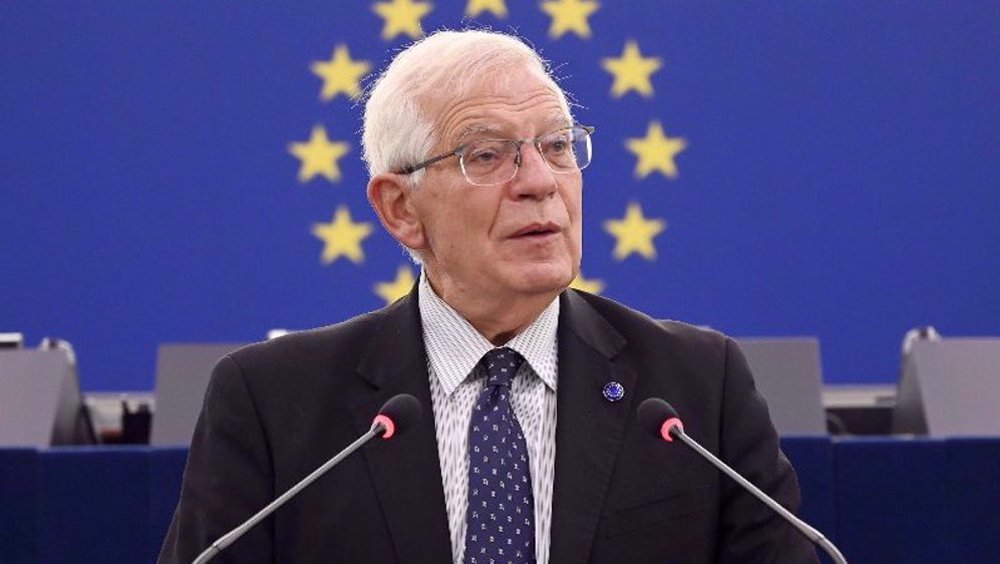Up to 70k refugees may be trapped in Greece next month: Minister
The Greek immigration minister says the number of refugees trapped in his country may triple next month and reach 70,000.
"We estimate that in our country the number of those trapped will be from 50,000-70,000 people next month," Yiannis Mouzalas said on Sunday, adding that currently there are 22,000 refugees in Greece.
More than 6,500 people were at the Idomeni camp near Greece’s border with Macedonia on Sunday as the Balkan state has introduced a daily cap of 300 refugees.
Dozens of refugees protested against the limitation on a rail track near the camp to express their opposition to the cap on border crossings.
The number of refugees has increased at the camp since last week after Macedonian border officials refused to accept Afghan refugees and applied stricter methods to check Syrian and Iraqi documents.

Austria and Balkan nations have also agreed measures to restrict numbers, while Hungary plans to hold a referendum on whether to accept mandatory quotas of refugees.
Slovenia, Croatia, Serbia and Macedonia decided to impose a limit of 580 refugees entering their soil every day. Austria also let only 80 refugees per day and would allow 3,200 refugees to transit the country each day.
Back in September, EU ministers agreed to relocate 120,000 refugees from Italy, Greece and Hungary to other EU countries. But Romania, the Czech Republic, Slovakia and Hungary expressed opposition to the majority vote decision.
There are concerns that the refugee crisis may lead to the collapse of the EU as a unitary bloc as its member states have not succeeded in adopting a common approach to the refugee issue so far.
Greece wants other EU member states to implement the existing agreements on taking in refugees without further delay.
Europe is facing an unprecedented influx of refugees, most of whom are fleeing conflict-ridden zones in Africa and the Middle East, particularly Syria.
Many blame support by some Western countries for militants operating in the Middle East as the main reason behind the departure of refugees from their home countries.
Diplomat discourages recourse to pressure, intimidation, confrontation against Iran
UN: 2024 deadliest year for aid workers amid genocide in Gaza
Gaza health official warns of hospital shutdowns within 48 hours
Israel kills 5 more paramedics in southern Lebanon: Health ministry
Iran to launch ‘new, advanced’ centrifuges in response to IAEA resolution: AEOI
Yemen fires hypersonic missile at Israeli airbase
VIDEO | New Delhi chokes under toxic smog as air quality remains at hazardous levels
VIDEO | Press TV's news headlines
















 This makes it easy to access the Press TV website
This makes it easy to access the Press TV website